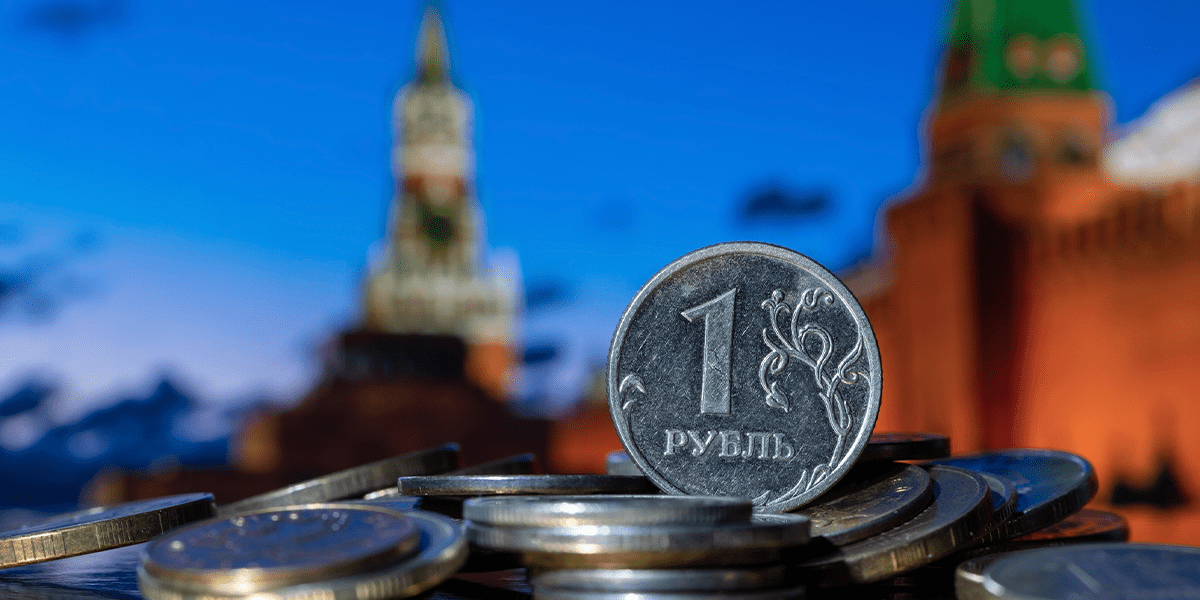Despite the Kremlin’s insistence on normalcy, the Russian economy is in a state of silent collapse. That was the consensus in a recent conversation between political analyst Jason Jay Smart and Jonathan Fink, host of the popular YouTube channel Silicon Curtain, as they dissected the accelerating economic deterioration gripping Vladimir Putin’s regime.
“We’re in a race to the bottom,” Jonathan said bluntly. “The only question is whether the banking system or the property sector collapses first.”
Warning Lights Across the Board
The signs are difficult to ignore. Smart noted that 13 of Russia’s 79 largest corporations are now unable to service their debts. Credit card delinquency has soared by 70%, with nearly 12% of Russians behind on payments for more than 90 days. “These are staggering figures,” Smart said. “And we’re not talking about independent analysts. Even Russian state-affiliated economists are sounding the alarm.”
Jonathan reinforced the point, citing testimony from the recent St. Petersburg International Economic Forum, where top officials—like Central Bank Governor Elvira Nabiullina and the Ministers of Finance and Economics—openly discussed dwindling reserves, looming recession, and what they euphemistically called a “cold spell.”
“They’ve burned through their emergency reserves,” Jonathan explained. “They’re running on fumes. And even Putin is being forced to talk about it publicly—something he’s avoided for years.”
Financial Desperation and Controlled Panic
One of the most disturbing indicators is the stress on Russia’s banking system. According to Jonathan, 20% of banks are facing serious liquidity problems—problems that historically precede bank runs and systemic failure. To stem panic, the Kremlin has quietly imposed withdrawal restrictions: Russian citizens can now only withdraw around 550 euros per day.
“They’ve also given banks the legal cover to deny withdrawals for 48 hours under vague pretenses like ‘fraud investigation,’” Jonathan said. “But it’s not about fraud. It’s about buying time and preventing a full-scale collapse.”
These restrictions, he added, are stopgap measures in a regime teetering under the weight of its own unsustainable war effort.
Militarized Economics and the “Bonus Bubble”
Another alarming trend is the massive flow of state funds into Russia’s poorest regions—used to incentivize military service with sky-high signing bonuses. In some oblasts, men are being offered the equivalent of three years’ salary—up to $30,000—to enlist.
“This is entirely unsustainable,” Jonathan said. “And it’s warping the local economies. Inflation is skyrocketing, and entire communities are now financially dependent on a war machine that’s bleeding out.”
According to internal figures, Russia is signing up 30,000 to 45,000 new servicemen per month—while losing around 20,000 to 30,000 monthly on the battlefield. “That means a constant churn of payouts—bonuses and death compensation,” Jonathan noted. “It’s a financial black hole.”
Putin, faced with this ballooning military expenditure, has already begun slashing domestic programs. But reducing defense spending could spell immediate disaster on the front. “The minute he cuts back,” Jonathan said, “the entire facade collapses.”
A War on Credit—and Reality
Compounding the problem is what Jonathan describes as “magical thinking” in Western analysis. Some commentators still project that Putin can continue the war through 2025—or even 2027. “That’s fantasy,” he said. “Russia is not immune to basic laws of economics or politics. We have to stop treating them as a mythical exception to history.”
Smart agreed, pointing to the contradiction in Putin’s public messaging. At the same economic forum meant to lure foreign investors, the Russian president declared Ukraine to be a fake country and claimed that any land once touched by Russian boots now belongs to Moscow.
“It’s delusional,” Smart said. “You don’t court global investment while telling your guests you might invade their homelands next.”
Jonathan added that even the Taliban attended that forum, raising eyebrows further. “There’s no rationality left, even by the standards of traditional Russian imperialism,” he said.
Negotiations as a Tactical Illusion
Talks of negotiations, they both argued, are just another Kremlin distraction. “This is the third such attempt to convince the West that Putin wants peace,” Jonathan said. “But what he actually wants is time—time to regroup, time to pressure Ukraine’s allies, and time to prepare for a final offensive.”
Reports already point to Russian troop buildups in the south and east, particularly near Pokrovsk and Sumy. “They’re not preparing for peace,” Smart said. “They’re preparing for another wave of crude, costly meat-grinder attacks.”
Jonathan believes that Putin’s goal is to discourage U.S. support for Ukraine’s cross-border strikes—especially those targeting oil infrastructure and the so-called shadow fleet. “The message is: stop hitting us at home, or we won’t come to the table,” he said. “But it’s a bluff. The table was never set in the first place.”
Economic Gravity Always Wins
In closing, Smart drew a historical parallel to 1917, when millions of Russian soldiers mutinied, left the front, and stormed the cities amid collapsing morale and a failed war effort. “Sometimes wars don’t end because the leaders want them to,” he said. “Sometimes the people decide enough is enough.”
Jonathan agreed. “The regime is collapsing. Not in flames—but in slow motion. And there’s no version of this story where it ends well for Putin.”
